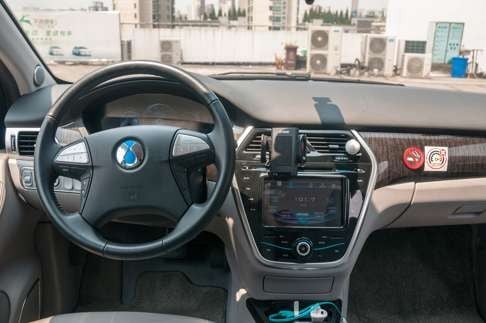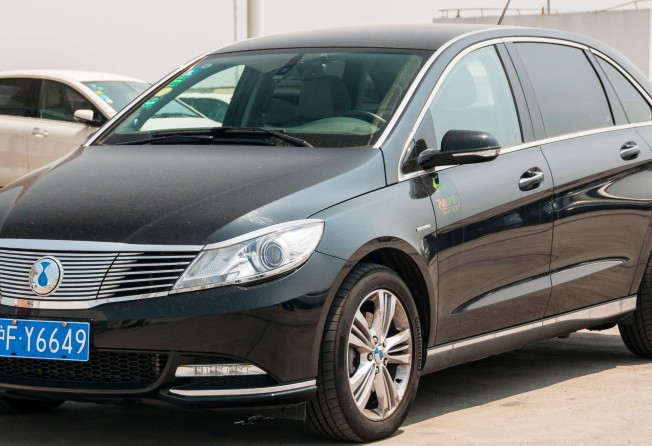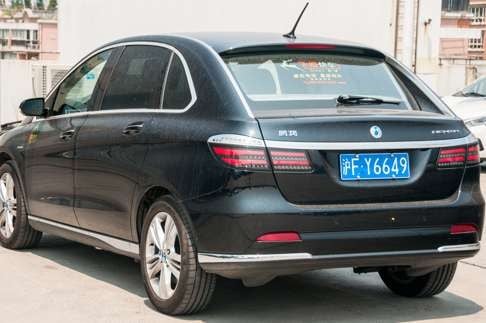
Denza banks on pedigree to stay ahead of the EV pack in China
BYD electric drivetrain and Mercedes platform combined in a well-built model that needs some adjustments

Back in 2011 the Chinese joint ventures started launching China only sub brands. Many of these were filled with electric cars. It was largely an effort to placate the government’s realisation that the whole joint venture (JV) model had not catapulted China into being a producer of world-class cars and merely created the largest car market for the big multinationals. With the new sub brands the government wanted to get hold of the latest electric vehicle (EV) technology and transfer this to the state-owned enterprises (SOEs) who largely are the JV partners.
Things, of course, didn’t quite go according to plan. Many of the “launched” brands have yet to sell a single car. FAW-Volkswagen, for example, produced an EV version of the VW Bora under the Kai-li brand but this has never gone on sale. BMW with Brilliance did launch the Zinoro 1E, an electric version of the X1, but it was only available to lease and also used old tech, giving it a not very useful 150km range.
Daimler Benz was the only multinational to actually make something new from the whole experiment. The company teamed up with BYD, the Warren Buffett-backed Chinese car and battery producer, to create a new JV. The Denza is the result, and essentially uses the drivetrain of the BYD e6, one of China’s most successful EVs – popular as a taxi – and matches it with the platform of the first generation Mercedes B-Class.

Although the Denza is based on the B-Class it is a much bigger car, with a wheelbase 2 mm longer than that of a fourth-generation E-Class, although the car’s overall length is considerably shorter. It’s distinctive but from the rear is reminiscent of a Renault 16.
Both inside and out, the build quality is good. Materials are definitely a step up from early versions of the e6 but BYD has caught up in recent years and probably is now of a similar overall finish.
Our test car was the low trim Lifestyle model and for the list price of 369,000 yuan (HK$430,564) (prices are reduced by central and local government subsidies by as much 110,000 yuan) the equipment level is poor. Although there is a touch-screen infotainment system, the sat-nav and a reversing camera are reserved for the higher Executive trim. Most of the controls, such as for air conditioning, are operated by the touch-screen in conjunction with fixed side selector buttons. These buttons have a hard resistance to them and are not very tactile; couple this with the low mounting of the screen and it is dangerous to operate while driving.
In the rear there is plenty of room for three adults and boot space is equally ample. In fact the car is probably best enjoyed from the back being chauffeured around. Despite its looks, the Denza is a notchback rather than a hatchback, although there is a rear windscreen wiper.
With a load of five adults and luggage, we drove the car from Shanghai to Hangzhou and back, a distance in excess of 200km each way. For an EV with a claimed maximum range of 300km this proved to be a real test.
Weighing in at over 2 tonnes, the car is heavy and the performance is quite slow. Acceleration from zero to 100km/h takes 14 seconds, and if you take your foot off the accelerator the regenerative braking quickly bleeds speed off converting it back to electrical energy. Therefore, with highway driving you have to try to keep the speed as constant as possible due to the difficulty in building it up. The steering is heavy and the test car felt as if it wanted always to veer off to the right. It was near impossible to get the windscreen wipers working intermittently or control the speed on this function.

The windows of the front doors kept misting up just where the view of the side mirrors are. Closer inspection indicated the misting was occurring on the outside of the windows and it was impossible to clear, making the mirrors near useless – far from ideal when driving on the highway.
Selecting sports mode seems to reign in the regenerative braking and possibly slightly quickens the acceleration, but it comes with a 10 per cent reduction in range penalty, making it really not worthwhile to use.
There is an American style foot operated parking brake, a carry over from the e6, which really, in a car billed as a premium brand, should have been replaced by an electric version.
The charging ports are in the front grille and can accept both standard and fast chargers. Charging can take up to 14 hours on a standard household supply, but using a super charger it takes less than an hour.
Although on the way to Hangzhou we did add a small amount of charge, we set off from Shanghai with a near full charge and probably could have made it to our destination without charging.
Denza is a brand but currently also the model. It is difficult to work out whether it is meant to be anything more than a one-off, and, if rumours are to be believed, all is not well between the JV partners. Interestingly, the electric version of the second-generation Mercedes B-class sold in the US and Europe uses batteries supplied by Tesla, a company BYD feels it is equal to. Zinoro has already shown a new car based on the current stretched X1 (ditching the full EV route for a plug-in hybrid), but so far there has been no news of another Denza.